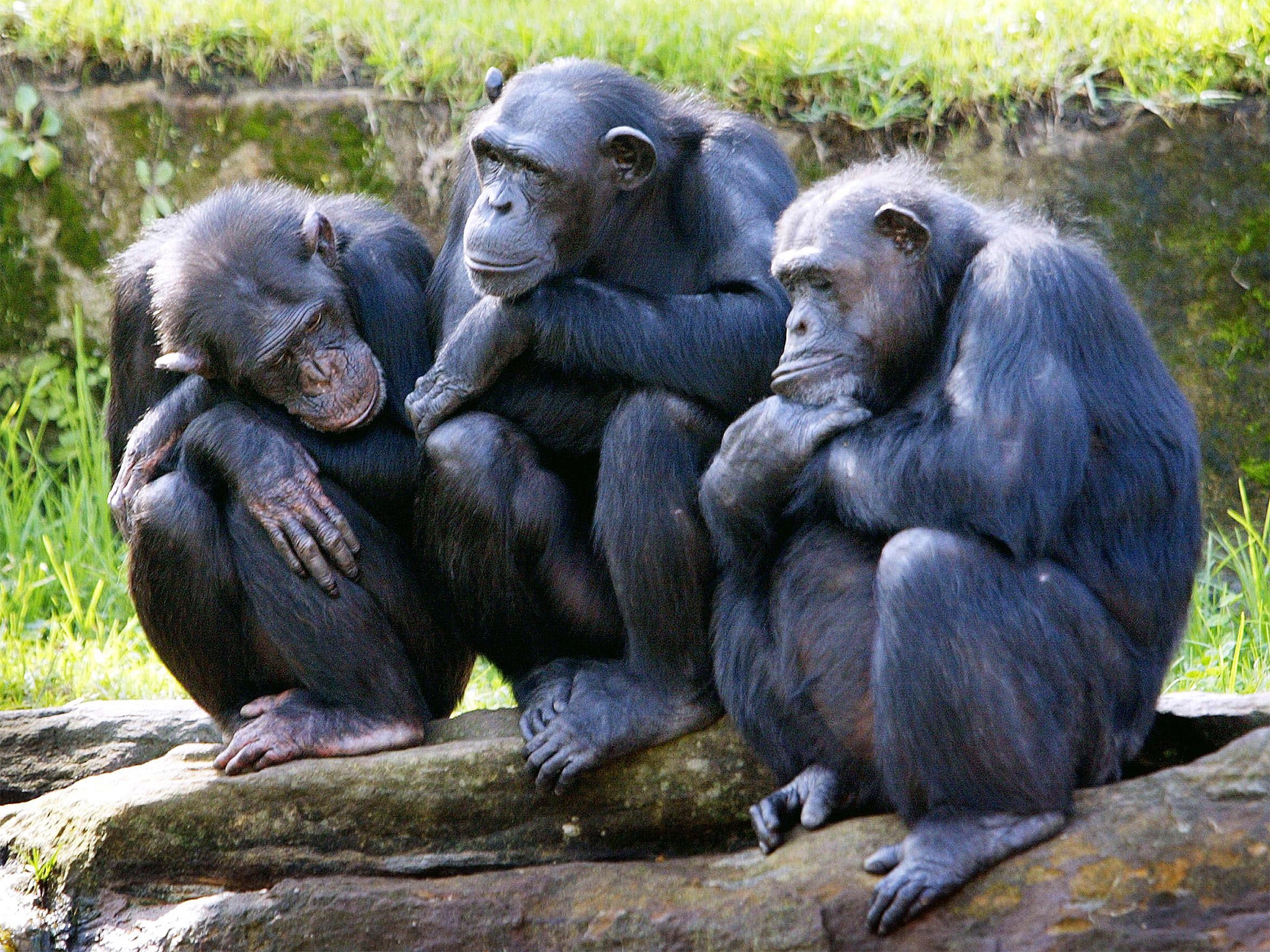New Zealand takes a monumental step forward for animals, allowing them to be legally recognised as ‘sentient’ beings.
The Act stipulates that it is now necessary to ‘recognise animals as sentient’ and that owners must ‘attend properly to the welfare of those animals’.


An amendment to New Zealand law on behalf of the The Animal Welfare Amendment Bill, which was passed on Tuesday, states that animals, like humans, are “sentient” beings.

Animals are now legally recognised as ‘sentient’ beings in New Zealand
“To say that animals are sentient is to state explicitly that they can experience both positive and negative emotions, including pain and distress,” said Dr Virginia Williams, chair of the National Animal Ethics Advisory Committee.




“The explicitness is what is new and marks another step along the animal welfare journey.”

“To say that animals are sentient is to state explicitly that they can experience both positive and negative emotions, including pain and distress,” said Chair of the National Animal Ethics Advisory Committee, Dr Virginia Williams, according to animalequality.net
“The explicitness is what is new and marks another step along the animal welfare journey,” she added.
Chimpanzees
Chimpanzees (Getty Images)
In addition, new material has been added to the section of the Act  pertaining to animal testing for other research purposes.
pertaining to animal testing for other research purposes.
The recent bill has also included a ban on the use of animals for the testing of cosmetic products. Dr Williams said the legal recognition of animal sentience provided a stronger underpinning of the requirements of the Animal Welfare Act.
Nelson SPCA manager Donna Walzl said the changes were “wonderful” and that “it’s great to finally see it brought into legislation. It’s awesome.”






She went on to explain that “you can see that they do have separation anxiety and that’s showing emotion. It’s the same with the animals that we see that are neglected and have real, true animal welfare issues. They suffer for it. You can see it in their eyes.”
The Government now demands that checks be made as to whether there has been ‘assessment of the suitability of using non-sentient or non-living alternatives in the project’ and ‘replacement of animals as subjects with suitable non-sentient or non-living alternatives’.
The SPCA Auckland said a declaration of sentience was required considering “most New Zealand law treats animals as ‘things’ and ‘objects’ rather than as living creatures”.
Walzl said she hoped that this new change in law by recognizing animals are the sentient beings that they are would add “more weight” to abuse and neglect cases in court. “Hopefully there will be some sterner penalties out there and that obviously creates a bigger deterrent for people to do those things.”






The bill also provides for a penalty scheme to enable low-to-medium level offending to be dealt with more effectively, and gives animal welfare inspectors the power to issue compliance notices, among other measures.
“Expectations on animal welfare have been rapidly changing. The bill brings legislation in line with our nation’s changing attitude on the status of animals in society.” said New Zealand Veterinary Association president Dr Steve Merchant.
The bill was introduce to parliament by primary industries minister Nathan Guy in May, 2013.
What is animal sentience?
The National Animal Welfare Advisory Committee (NAWAC) understands animal sentience to mean that animals have emotions, feelings, perceptions, and experiences that matter to them. These can be negative (such as pain or boredom) as well as positive (such as pleasure or comfort).
We don’t know whether animals’ emotions, feelings, and experiences are similar to those of humans. We also don’t know if they are felt with the same intensity. But they matter to individual animals and have an impact on their welfare.


How animals feel and experience the world
Two types of experiences affect an animal’s welfare. Those that are:
critical for survival
related to how they perceive their environment.
Experiences critical for survival (for example thirst, hunger, pain)
These motivate the animal to engage in particular behaviours, such as drinking and feeding, to correct imbalances in its internal state. Survival-critical experiences are generally negative because they signal to the animal that something is going wrong or soon will go wrong, and that action is required (for example drinking or feeding).


Experiences relating to how animals perceive their environment
These are situation-related experiences. They can be negative or positive. For example, pleasure, feeling secure and safe, frustration, boredom, helplessness, loneliness, anxiety, or fear.
How can animals live a good life?
Emotions and feelings are subjective and cannot be measured directly. But we don’t need direct evidence of how animals feel to achieve good animal welfare and for animals to live a good life.
Preventing negative experiences can at best lead to a neutral state of welfare. A neutral state is where animals are surviving – they do not feel excessively hungry or thirsty or anxious. Good animal welfare, and a good life, can be achieved only when animals can also have experiences that they find rewarding and positive.


Taken together, the steps below can help animals live a good life.
Cater for animals’ basic needs
When animals are sick, uncomfortable, or hungry they may not be able to engage in rewarding behaviours, even if given the opportunity. Ensure animals feel healthy and comfortable by giving them what they need to maintain optimal health and ensuring they are comfortable (for example, by providing appropriate shade and shelter).
This will ensure that negative survival-critical experiences are minimised, allowing animals to engage in rewarding behaviours when they have the opportunity.
Improve how animals are kept
Give them opportunities to engage in behaviours that promote positive experiences. For example:


make sure they have appropriate social companions
provide opportunities for exploration and mental stimulation
allow animals to make their own choices.
Change husbandry practices
Where negative experiences cannot be avoided, reduce their negative impact by changing your practices.
Take steps to improve the handling of animals to reduce their fear of humans. During painful husbandry procedures, reduce the severity of pain that animals experience by providing pain relief where this is not already mandatory.
Opportunities for positive experiences
When providing opportunities for positive experiences, we need to keep in mind the natural behaviour of the animal. It is also important to know that animals, like humans, like to feel safe and make their own choices. They like to have some control over their lives.


A simple way to provide positive experiences is to allow animals to bond with others of their kind or appropriate companions of other species. This allows for positive relationships between animals to be established and maintained. Positive human-animal interactions can also promote positive experiences.
Depending on the species of animal, other opportunities to provide positive experiences may include:






presenting animals with a choice of foods of different textures, smells, and tastes
giving animals access to devices or material they can explore or manipulate (such as straw, grooming brushes, novel items, toys)
providing voluntary access to areas of interest (like the outdoors, hide-outs, platforms)
providing opportunities for exercise and other rewarding behaviours, such as play.
Positive experiences: some examples for different species
Dairy cattle
Allowing cattle to have more time for lying and positive interactions with other animals may be a way to promote a positive experience for cattle. While cattle normally need at least 8 to 10 hours of lying a day to rest and ruminate, they choose to lie down for 12 hours or more if they have time available and have access to soft, clean, and dry lying surfaces.
When given the opportunity, cattle kept indoors for extended periods will choose to go outside depending on weather, time of day, food availability, and other factors. Giving them voluntary access to the outdoors lets them take control over their own actions. They may want to go outside to graze, have more space to lie, experience cooler temperatures at night, or get away from dominant cattle. Or maybe they just enjoy a gentle stroll with a view.
Companion animals like dogs, cats, and rabbits
“Expectations on animal welfare have been rapidly changing. The bill brings legislation in line with our nation’s changing attitude on the status of animals in society, ” according to the President of the New Zealand Veterinary Association, Dr Steve Merchant.